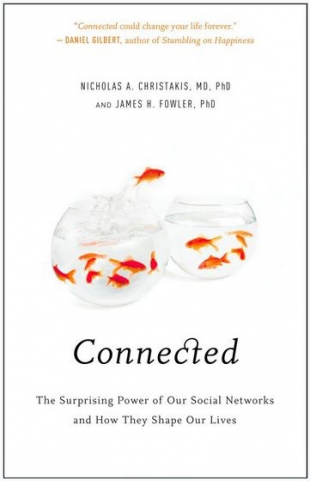"In spite of these potential negative effects, we are all connected for a reason. The purpose of social networks is to transmit positive and desirable outcomes, whether joy, warnings about predators, or introductions to romantic partners. To some extent, the transmission of bad behaviors and other adverse phenomena (like germs) are merely side effects that we must endure in order to reap the benefits; they are grafted onto an apparatus that was built, evolutionarily speaking, for another, more beneficial purpose.
"To be clear, we are not suggesting a linear progression across history or evolutionary time from anarchy to state to utopia. But we do believe that there is a utopian impulse to form networks that has always been with us. We gain more than we lose by living within social networks, and this drives us to embed ourselves in the lives of others. The natural advantages of a connected life explain why social networks have persisted and why we have come to form a human superorganism.
"Crucial traits and behaviors that lie at the root of — and that nourish — social connections have a genetic basis. Altruism, for example, is a key predicate for the formation and operation of social networks. If people never behaved altruistically, never reciprocated kind behavior, or, worse, were always violent, then social ties would dissolve, and the network around us would disintegrate. Some degree of altruism and reciprocity, and indeed some degree of positive emotions such as love and happiness, are therefore crucial for the emergence and endurance of social networks. Moreover, once networks are established, altruistic acts — from random acts of kindness to cascades of organ donation — can spread through them."
